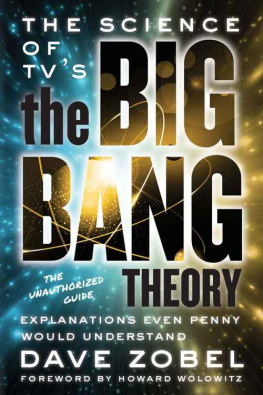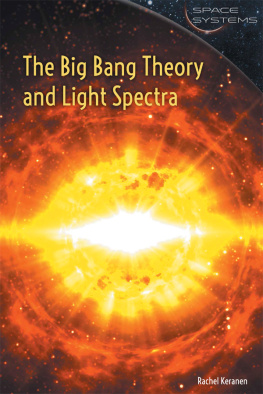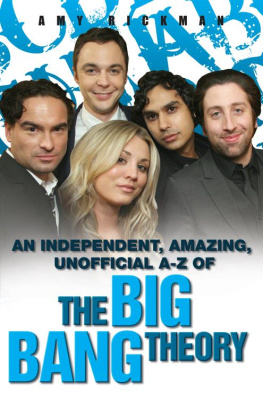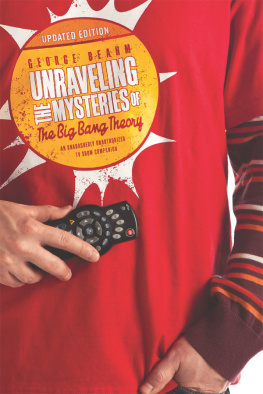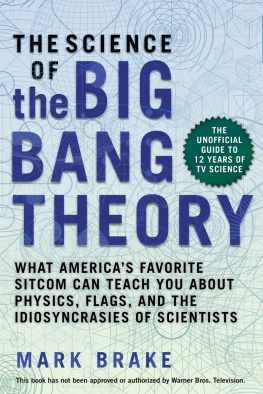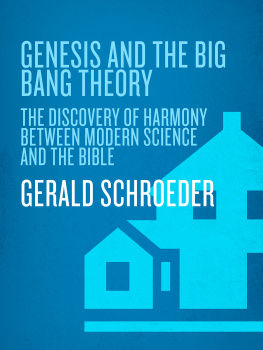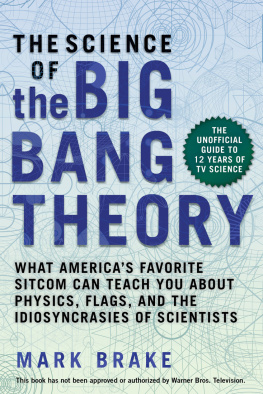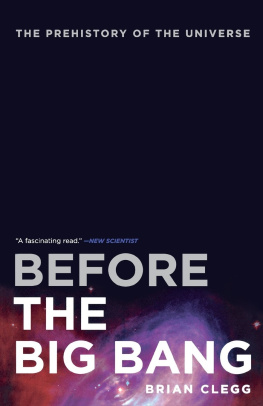FOREWORD
Preserving Your Eponymity
COLD OPEN
FADE IN:
INT. APARTMENT DAY
ANNOUNCER (O.S.)
The science you are about to see is true.
The names have been changed to protect the instruments.
Except there really was a Sheldon Leonard.
And there really is a Howard Wolowitz.
AND WE:
FADE OUT.
In 1979, having bought one of the first TRS80 Model II microcomputers in New York City, I set out to write some commercial software for it. Finding that the only thing it would do reliably was to crash, I was advised to consult a nineteen-year-old genius working at a Radio Shack in Manhattan. His name was Bill Prady, he did indeed turn out to be a genius (with a wicked sense of humor), and within a year he was a vice president and partner at my small computer company: The small Computer Company.
Originally we worked out of my Brooklyn apartment, but once we had grown big enough to move into a proper Manhattan office, Bill showed that he was not only a technical and comedic genius but a resourceful one as well. He draped a pink angora sweater over the back of the receptionists chair. For years, visitors and customers simply assumed that our receptionist was merely away from her desk, never suspecting that she didnt actually exist.
Comedy proved to be Bills true love. He started performing standup in the evenings and eventually landed a writing job at Jim Henson Associates. When the company moved to Hollywood in 1990, Bill went with them and began to leave his mark all over the world of television.
One day he asked whether Id mind if he named a TV character after me. Producer Chuck Lorre had loved Bills idea for a TV show based on the zany people we both knew from the computer software business, and it seems Bill had always felt Howard Joel Wolowitz was the perfect name for a nerd. (My mother would be so proud.)
Chuck and Bill agreed that a roomful of people staring into computer screens might not be the best way to keep an audience entertained. So the characters were changed to be physicists and engineers which also meant that they could be given real-world scientific problems to struggle with. This book shows how successful that effort has been.
Bill and I remain friends to this day. He even gave me my fifteen milliseconds of fame, in the form of a cameo during the diner scene of The Re-Entry Minimization (Season 6, Episode 4), where I can be glimpsed over my namesakes shoulder, seated near a sign that shrugs (appropriately): Sorry NO CREDIT.
And in case youre wondering, the similarities end with the name. Im no ladies man, and dickeys and skinny pants are not for me. But even into my seventies, Im still making money programming, using the same software that Bill and I developed with others long ago. And I couldnt be prouder to be associated with his homage to the nerds both of us knew and loved.
Howard Joel Wolowitz*
*(really)
Newtown, Connecticut
March 2015
INTRODUCTION
Whaddya MEAN Explanations Even Penny Would Understand?!
[Scene: An apartment building in Pasadena, California, USA.]
Sheldons mother: Sheldon, when is your landlord going to fix the elevator?
Sheldon: I dont know. Lately weve been talking about converting it into a missile silo.
Leonard: Your son seems to think we need to launch a preemptive strike on Burbank.
Sheldon: Get them before they get us .
The Rhinitis Revelation (Season 5, Episode 6)
Whats this? A deadly dance of mutual apocalyptic cease-and-desist, Southern California style, city against city? The left brains of the California Institute of Technology (Pasadena) versus the right brains of Warner Bros. Entertainment (Burbank)? Why havent we been warned?
Pasadena Where The Big Bang Theory is set.
Burbank Where the Big Bang Theory set is.
In reality, the situation isnt quite that dire. Neither Pasadena nor Burbank has expressed any desire to wipe the other off the map anytime soon. Its only a scene from The Big Bang Theory , the situation comedy with the highbrow pedigree.
By turns hilarious and poignant, the show explores the differences and similarities between book smarts and people smarts. It features four intellectually gifted social maladroits and one street-savvy ingenue (or, in co-creator Chuck Lorres facetious turn of phrase, four wise guys and a sexy dame). And every time the guys haul out their advanced science degrees and start talking shop, viewers know theyre in for a buzzword bath.
Except that its not buzzwords. Nearly every bit of science mentioned on the show is entirely legitimate. Its just that not much of it gets explained. Nor should it. This is CBS, not PBS, after all, and viewers arent tuning in to be educated, only entertained. Brilliant people being foolish is a time-tested formula for comedy, and foolish people being brilliant for drama, but its just not all that funny when brilliant people are brilliant. (And if the thing you most want to watch is foolish people being foolish, well, you hardly need a TV for that.)
Still, its a rare viewer who doesnt occasionally long for a little more background in whatever it is the characters happen to be jabbering about. Wouldnt you like to know, for instance,
- what Leonard does in the laser lab all day?
- why Sheldon is so fanatical about being the scientist who confirms string theory when, according to Leonard (on his very first date with Penny), you cant prove string theory?
- where Howard who, according to the sign on his door, works in an ASTRONAUTICAL ENGINEERING lab in season 1 but a MECHANICAL ENGINEERING lab (and a RESTICTED AREA, no less) in season 5 found the time to become an expert programmer as well?
- when Raj domestic divo by day, stargazer by night sleeps?
We dont have answers to all of those questions, but we can take a poke at some of them and see what we find. Its not a requirement, of course. You can get a terrific laugh from the nerds on the show without having any background in science at all, but its nice to know why the nerds in the audience are laughing too.
Okay, nerds is unfair we should probably be saying something like gifted and highly educated persons. And you can be a scientist without being a nerd. (In a more serious moment, Lorre proposed that the show was not about geeks or nerds [at all, but] about extraordinary people.)
Theres an unfortunate myth about scientists, probably fueled by the nerd/geek stereotype. In the popular imagination, scientists are self-assured but introverted. Theyre walking encyclopedias but ignorant of pop culture. When you ask them how they are, theyll analyze the question in depth before giving a medically accurate response. When you comment on the weather, theyll respond with strange mumblings about global thermodynamics and ripples of causality.
But there are many things scientists know just as little about as the rest of us. Ask a scientist what energy is or time, or space, or fields, or free will and watch him squirm. Although the word science comes from a root meaning knowing, science isnt really about having knowledge; its about searching for it. (Until the mid-1800s, it wasnt even called science; it was called natural philosophy, which translates roughly to the pursuit of knowledge about how Everything works.) And its an endless search. The smartest people know that what they know is nothing compared to what they dont know.
Fortunately, you can understand some surprisingly heady concepts even if you dont think of yourself as having any scientific aptitude whatsoever. Science is all about curiosity, and that same curiosity that drives scientific research runs deep in all of us. Have you never wondered what makes logs float but rocks sink? Why no two snowflakes are alike? Whether bears can ever be taught the rudiments of beekeeping? In the pursuit of knowledge, curiosity is the most important factor.
Next page
